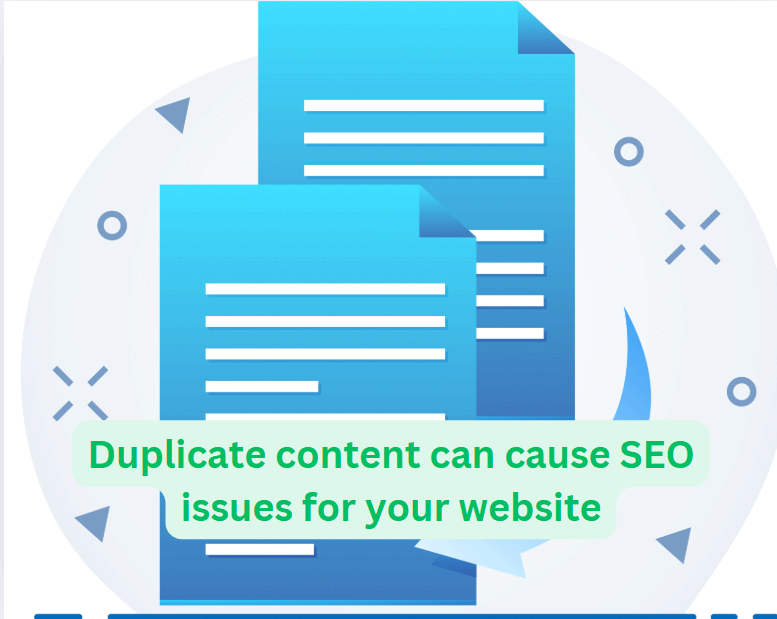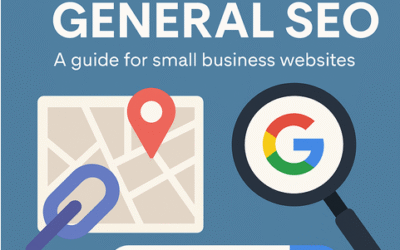Why Duplicate Duplicate Content on Your Website is a Problem (and How to Fix It)

Duplicate content on a website can seem harmless at first, but it can create significant issues for your SEO, user experience, and overall site performance. If your website contains multiple pages with identical or very similar content, search engines may struggle to determine which page to prioritise, potentially leading to lower rankings and reduced traffic.
Let’s explore why duplicate content is a problem and provide actionable steps to fix it.
Duplicate Content Confuses Search Engines
Search engines like Google aim to deliver the most relevant and high-quality results for users. When they find multiple pages with identical or very similar content, they face a challenge:
- Which version should they index and display in search results?
- Which version should get credit for backlinks and SEO authority?
- Should they split the ranking power between multiple pages or prioritise just one?
Since search engines don’t want to serve redundant content in results, they often choose just one version to index. If you haven’t specified which page is the preferred one, Google may pick the wrong one—potentially an outdated or less optimised version—causing your primary page to miss out on valuable rankings.
Duplicate Content Can Lead to Keyword Cannibalisation
If multiple pages target the same keywords with nearly identical content, they may end up competing against each other. This is known as keyword cannibalisation, where instead of helping your SEO, your own pages weaken each other’s ranking potential.
For example, if you run a plumbing business and have two pages with almost identical content targeting “emergency plumber Sunshine Coast,” Google might not know which one to rank higher. Instead of having one strong page that ranks well, both pages might perform poorly, splitting search visibility and traffic between them.
It Wastes Your Crawl Budget
Google assigns a crawl budget to every website, determining how many pages its bots will crawl and index within a certain timeframe. If your website has a lot of duplicate content, search engine crawlers might waste time indexing these unnecessary pages instead of discovering new or updated content.
This is particularly important for larger websites, eCommerce stores, and news sites where fresh content needs to be indexed quickly. If search engines spend too much time crawling duplicate pages, important updates might be delayed, reducing their effectiveness in search rankings.
Duplicate Content Can Harm User Experience
Beyond SEO, duplicate content can also frustrate your visitors. When users see the same content across different pages, it can create confusion and make your website feel repetitive or unhelpful.
This can lead to:
- Higher bounce rates – Users leave your site quickly because they don’t find the information engaging or useful.
- Lower trust – If visitors feel they are going in circles, they may doubt your authority and credibility.
- Navigation issues – If duplicate pages appear in your menus or search results, users might struggle to find the right information.
A well-structured website with unique, valuable content is much more effective in keeping visitors engaged and encouraging them to explore further.
It Dilutes Your Backlinks and Social Shares
Backlinks—links from other websites pointing to your content—are a crucial part of SEO. However, if multiple pages contain the same content, other websites may link to different versions, diluting the backlink power.
For example, if three versions of a blog post exist on your site, and each one gets a few backlinks, those links won’t combine to boost one strong page. Instead, the SEO value is split, reducing the ranking potential of all versions.
Similarly, social shares can be divided across different URLs, making it harder for a single page to gain traction online.
Google May Filter or Devalue Duplicate Pages
Google doesn’t issue direct penalties for duplicate content unless it’s deemed manipulative (such as copying content from other sites to game the system). However, it does apply duplicate content filters, which can remove redundant pages from search results.
If Google detects duplicate content on your site, it may:
- Choose to display only one version while ignoring others.
- Lower the ranking of all duplicate pages.
- Reduce the chances of your content appearing in search snippets.
While this isn’t a penalty in the traditional sense, it can have a similar effect—your website may lose valuable search traffic without an obvious reason.
How to Fix Duplicate Content Issues on Your Website
The good news? Duplicate content issues can be resolved with a few strategic fixes. Here’s what you can do:
Use Canonical Tags to Tell Google Which Page to Prioritise
A canonical tag (rel=”canonical”) is a piece of code that tells search engines which version of a page is the original or preferred one. If you have similar pages that need to exist for user experience reasons (e.g., a print-friendly version of a webpage), adding a canonical tag ensures that only the primary page gets indexed.
Set Up 301 Redirects for Unnecessary Duplicates
If you have multiple pages with nearly identical content and no reason to keep them separate, use 301 redirects to point all duplicate URLs to the main version. This consolidates SEO authority and ensures visitors land on the right page.
Use ‘Noindex’ for Pages That Shouldn’t Appear in Search Results
For pages that are necessary for internal use but shouldn’t be indexed by search engines (e.g., duplicate product pages in an online store), you can use a meta robots ‘noindex’ tag. This tells Google not to include the page in search results, preventing it from competing with similar content.
Consolidate Similar Content
If you have multiple pages covering the same topic with slight variations, consider merging them into one comprehensive page. This not only improves SEO but also enhances user experience by providing all the necessary information in one place.
Avoid Copy-Pasting Content Across Multiple Pages
Ensure each page on your website has unique, valuable content. If you must reference similar information, try rewriting it or structuring it differently to add new insights.
Final Thoughts
Duplicate content can quietly undermine your website’s SEO, user experience, and ranking potential. While search engines don’t always penalise it outright, it can lead to lower rankings, wasted crawl budget, and reduced visibility in search results.
By taking proactive steps—such as implementing canonical tags, 301 redirects, and noindex directives—you can eliminate duplicate content issues and strengthen your website’s search performance.
Need help identifying and fixing duplicate content on your website? Get in touch, and let’s optimise your site for better rankings and user engagement!
Author: Ashley Bryan
Recent Posts
- Why and How to Add Testimonials & Reviews to Your Website September 11, 2025
- Local SEO vs General SEO: Why “Plumber Brisbane” Ranks but “Plumber” Doesn’t August 20, 2025
- How to Get Your Brand Name (Not Just Your URL) to Show in Google Search Results August 11, 2025






